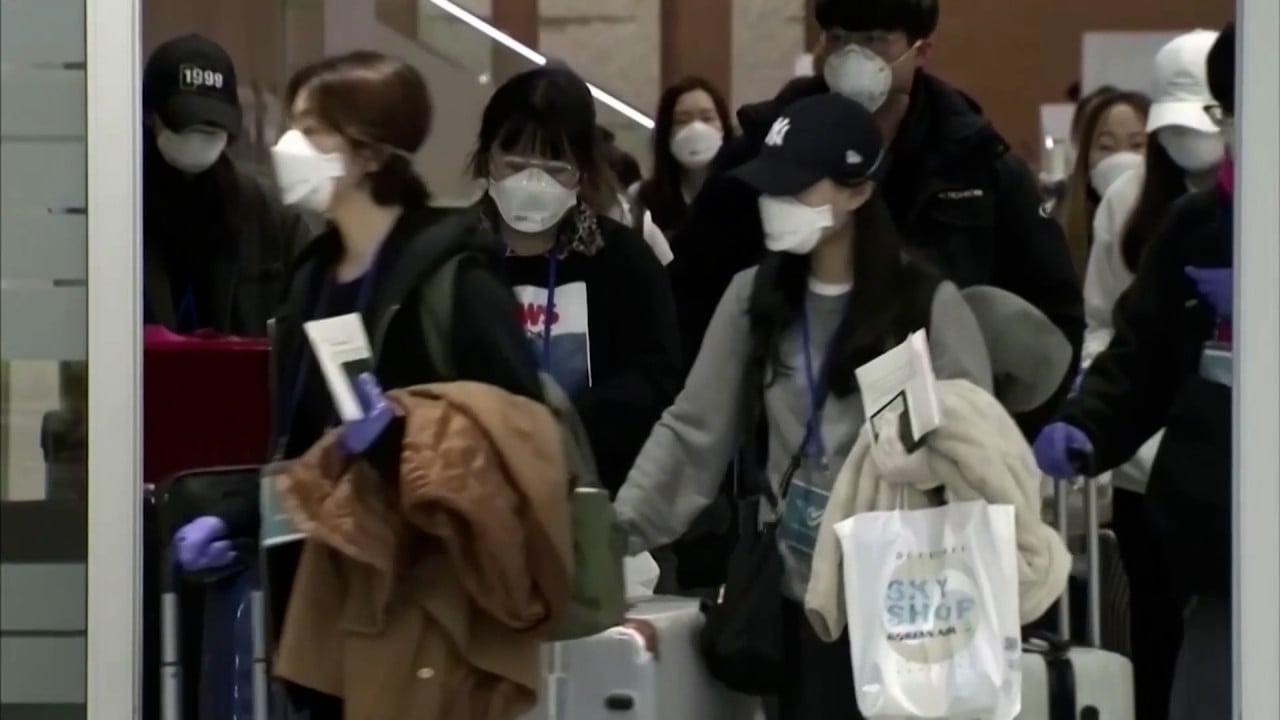
01:45
South Korea to require Covid-19 tests for travellers from China, joining US and Japan

Passengers arriving in Britain and France from China will require a negative test for Covid-19 after a surge in infections in China.
Starting from January 5, travellers arriving in the UK from China will need to show a negative test taken no more than two days prior to departure, the Department of Health and Social Care said in a statement on Friday.
The French government says it will require travellers boarding a flight from China to show a negative Covid-19 test fewer than 48 hours old with their boarding pass, with random tests carried out on passengers on arrival.
The two countries are joining Spain, South Korea and Israel as the latest nations to impose Covid-19 tests on travellers from China, after Beijing dropped foreign travel curbs despite surging cases.
Italy, Japan, India, Malaysia, Taiwan and the US are also requiring negative results for all travellers from mainland China, in a bid to avoid importing new variants from the Asian giant.
Switzerland, meanwhile, said on Friday it was not planning to tighten entry restrictions on travellers from China.
“It is not currently necessary to provide proof of vaccination, recovery from Covid-19 or a [negative] test to enter Switzerland,” a Swiss health ministry spokesman said.
“There are no plans for the moment to introduce health measures at the border either,” he said.
The European Union’s infectious disease agency (ECDC) said on Thursday it believed introducing mandatory Covid screenings for travellers from China was “unjustified”.
Germany said it did not currently see the need to impose entry restrictions either, but argued for a coordinated EU-wide system to monitor variants at European airports.
Switzerland is not in the EU but is surrounded by nations who are members of the bloc and is in Europe’s Schengen open-borders zone. Bern plans to work with Brussels on any future moves.
“Switzerland is working closely with the EU and European countries to manage the Covid-19 crisis and will continue to do so. Switzerland will coordinate further action with its EU partners if need be,” the health ministry spokesman said.
The World Health Organization on Friday once again urged China’s health officials to regularly share specific and real-time information regarding the Covid-19 situation in the country, including more genetic sequencing data and data on hospitalisations and deaths.
WHO’s technical advisory group on the evolution of Sars-COV-2 is set to hold a meeting on January 3, to which the agency said it has invited Chinese scientists to present detailed data on viral sequencing.
Late on Thursday, WHO Director General Tedros Adhanom Ghebreyesus said in a tweet that the global health agency needs more information to assess the latest surge in infections in China.
It was “understandable” that some countries had introduced restrictions in response to its Covid-19 surge, he said.
But on Friday, Chinese foreign ministry spokesman Wang Wenbin insisted: “Since the outbreak of the epidemic, China has been sharing relevant information and data with the international community, including WHO, in an open and transparent manner.
“We shared the sequence of the new coronavirus at the first instance, thus making important contributions to the development of relevant vaccines [and] drugs in other countries.”
Reuters and Agence France-Presse